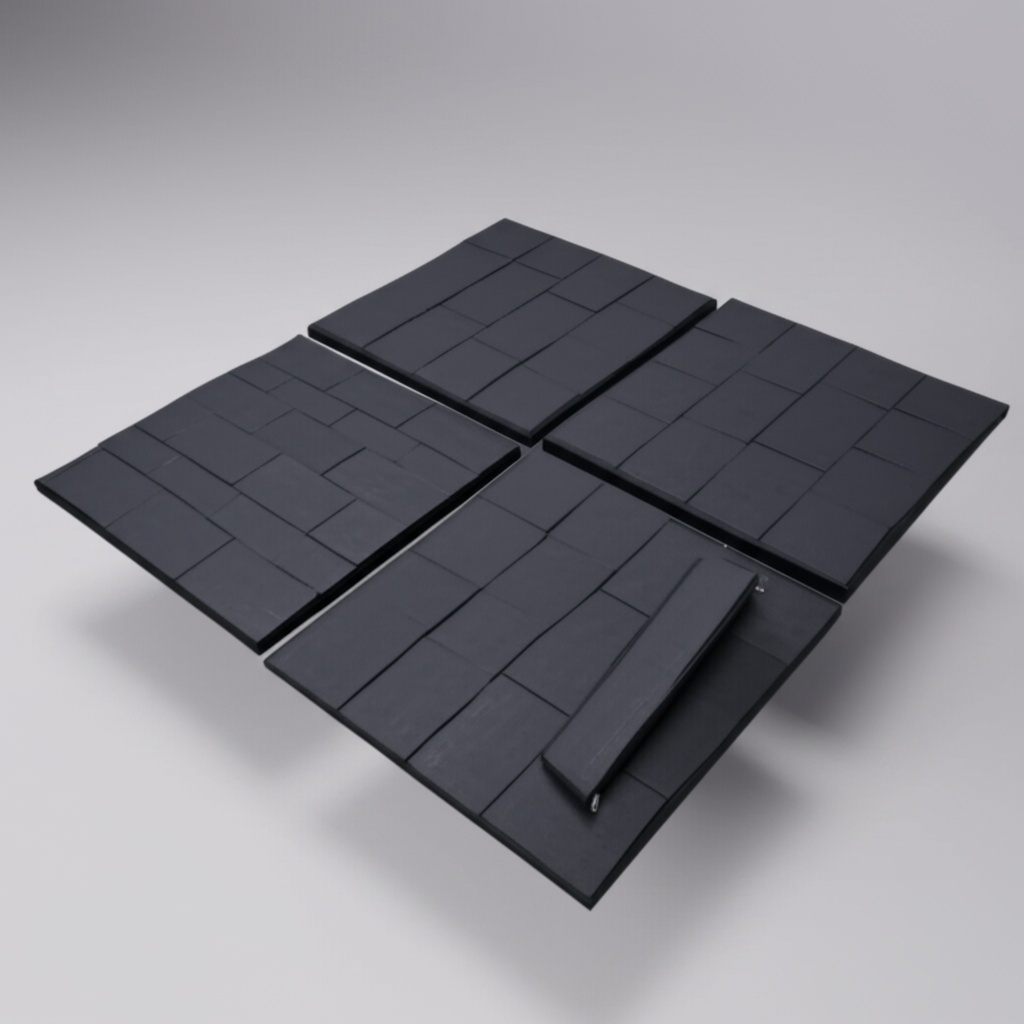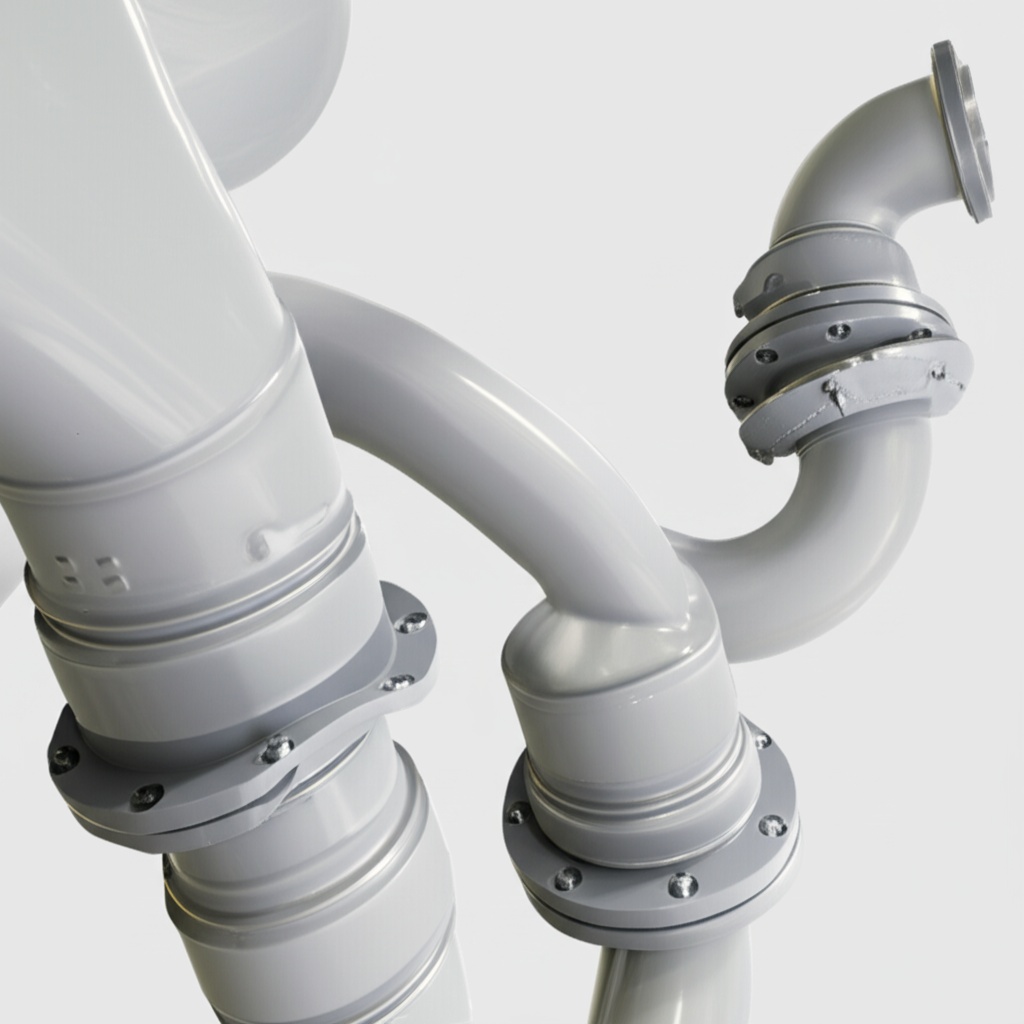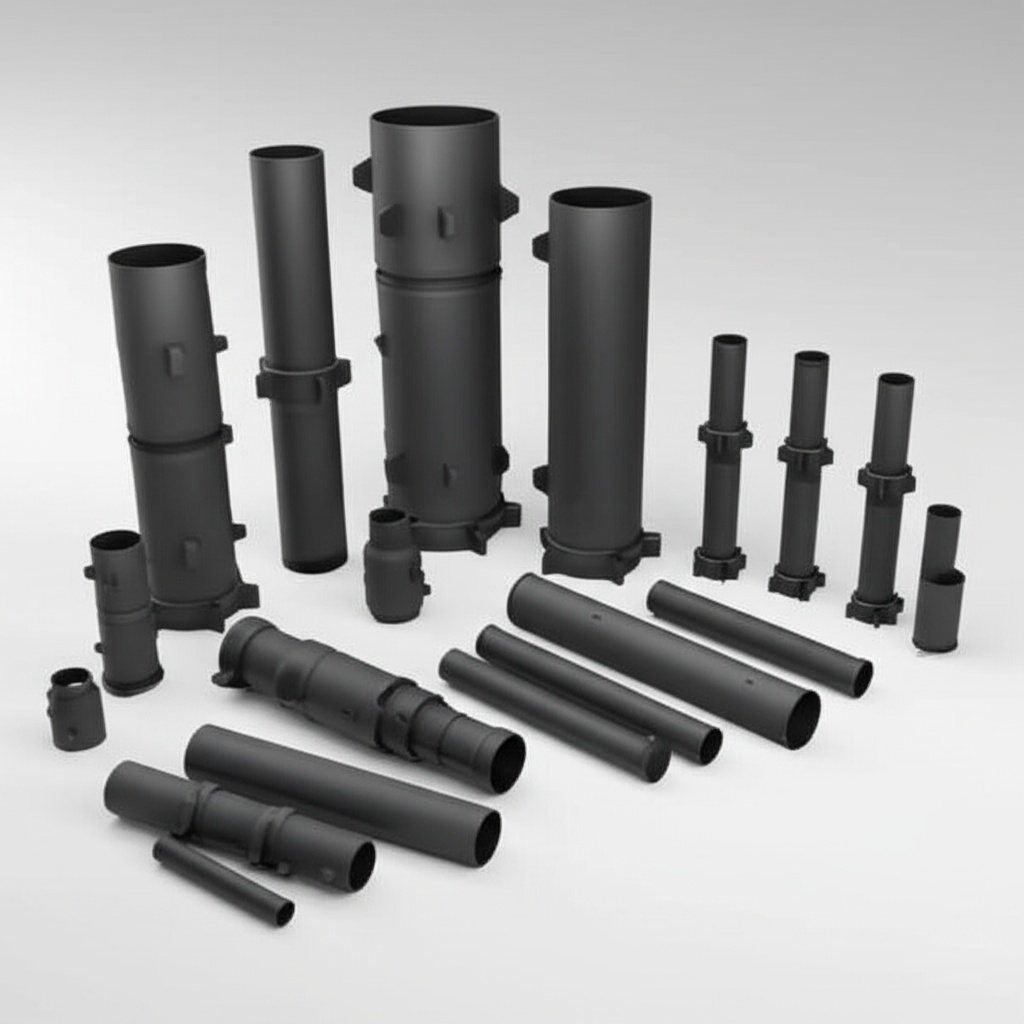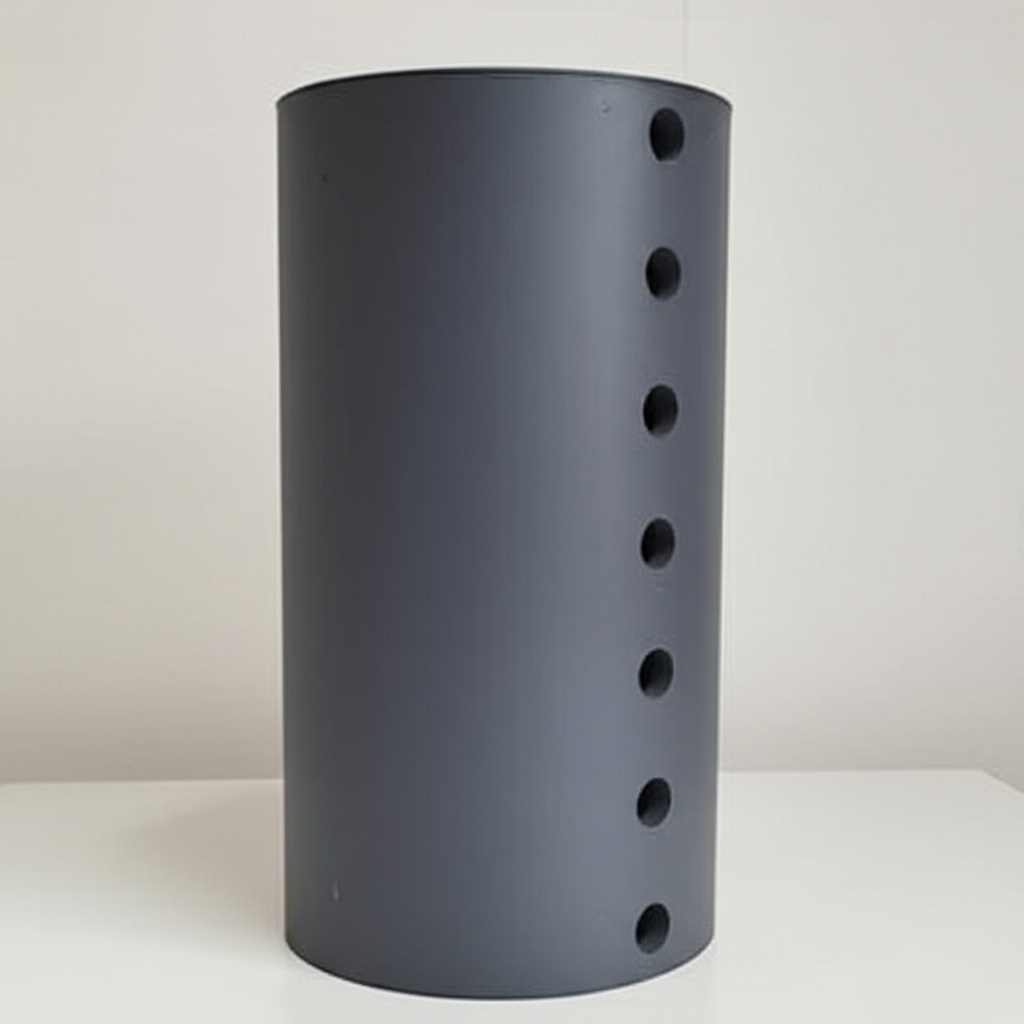Custom SiC Parts Made in Chile for Your Needs

Share
Custom SiC Parts Made in Chile for Your Needs
In the demanding world of high-performance industrial applications, the choice of materials can make or break a project. From the intricate circuits of semiconductor manufacturing to the harsh environments of aerospace components, materials must withstand extreme conditions while delivering unparalleled performance. This is where custom silicon carbide (SiC) parts emerge as the material of choice, offering an exceptional blend of properties that traditional materials simply cannot match.
This blog post will delve into the critical role of custom SiC parts, their diverse applications, and the essential considerations for engineers, procurement managers, and technical buyers. We’ll explore why SiC is indispensable in sectors like power electronics, renewable energy, metallurgy, and chemical processing, and how custom solutions can provide a distinct competitive advantage. While the global market for advanced ceramics is vast, we will specifically address the availability and benefits of sourcing custom SiC parts made in Chile for your specialized needs.
Why Custom Silicon Carbide Excels
Custom silicon carbide is a marvel of technical ceramics, renowned for its superior properties that enable groundbreaking advancements across numerous industries. Unlike off-the-shelf components, custom SiC parts are precisely engineered to meet specific application requirements, ensuring optimal performance and longevity.
- Extreme Hardness and Wear Resistance: SiC is one of the hardest materials known, second only to diamond, making it ideal for applications requiring exceptional wear resistance, such as bearings, seals, and nozzles.
- High Thermal Conductivity: Its excellent thermal conductivity allows for efficient heat dissipation, crucial in power electronics manufacturers and LED manufacturing where thermal management is critical.
- Exceptional Thermal Shock Resistance: SiC can withstand rapid temperature changes without cracking or degrading, making it suitable for high-temperature furnaces and industrial equipment manufacturers.
- Outstanding Chemical Inertness: Resistant to most acids, alkalis, and corrosive gases, SiC is invaluable in chemical processing companies and oil and gas companies where aggressive chemicals are present.
- High Temperature Strength: SiC maintains its mechanical strength at elevated temperatures, outperforming metals in aerospace companies and nuclear energy companies applications.
- Low Thermal Expansion: Its low coefficient of thermal expansion contributes to dimensional stability, crucial for precision components in telecommunications companies and medical device manufacturers.
Main Applications Across Industries
The versatility of custom SiC parts extends across a wide spectrum of industries, providing solutions for some of the most challenging engineering problems.
| Industry | Key Applications of Custom SiC | Benefits |
|---|---|---|
| Semiconductor Manufacturing | Wafer carriers, furnace components, susceptors, process chamber liners | High purity, thermal stability, resistance to plasma etching, precise dimensional control |
| Automotive Companies | Brake discs, clutch components, pump seals, exhaust system components | Lightweight, high wear resistance, excellent thermal management, improved fuel efficiency |
| Aerospace Companies | Engine components, heat exchangers, structural parts, mirror substrates | Lightweight, high strength-to-weight ratio, extreme temperature tolerance, thermal shock resistance |
| Power Electronics Manufacturers | Heat sinks, substrates for power modules, insulation components | Superior thermal conductivity, electrical insulation, high breakdown voltage |
| Renewable Energy Companies | Solar panel components, wind turbine bearings, fuel cell parts | Durability in harsh environments, efficiency in energy conversion, corrosion resistance |
| Metallurgical Companies | Furnace linings, crucibles, thermocouple protection tubes, hot gas filters | Resistance to molten metals, high temperature stability, thermal shock resistance |
| Defense Contractors | Armor plating, optical components, lightweight structural elements | High hardness, ballistic protection, thermal stability, reduced weight |
| Chemical Processing Companies | Pump components, valve parts, heat exchanger tubes, seals, nozzles | Excellent corrosion resistance to aggressive chemicals, high temperature stability |
| LED Manufacturers | Substrates, heat spreaders, optical components | High thermal conductivity, optical transparency (for specific SiC types), durability |
| Industrial Equipment Manufacturers | Bearings, seals, nozzles, grinding media, wear plates | Extreme wear resistance, long service life, reduced maintenance |
| Telecommunications Companies | Precision optical components, high-frequency device substrates | Dimensional stability, low thermal expansion, high dielectric strength |
| Oil and Gas Companies | Downhole tools, pump components, seals, nozzles in corrosive environments | Wear and corrosion resistance, high pressure capability, thermal stability |
| Medical Device Manufacturers | Surgical instruments, implants (research phase), precision components | Biocompatibility, wear resistance, sterilization compatibility |
| Rail Transportation Companies | Brake components, bearing systems, high-wear parts | High wear resistance, thermal stability, increased operational safety |
| Nuclear Energy Companies | Fuel cladding, structural components, heat exchangers | Radiation resistance, high temperature stability, corrosion resistance in harsh environments |
Recommended SiC Grades and Compositions
The performance of a custom SiC part is heavily influenced by its specific grade and composition. Selecting the appropriate material for a given application is crucial. Here are some of the most common types of engineered ceramics:
- Reaction-Bonded Silicon Carbide (RBSC): Known for its high strength, excellent thermal shock resistance, and good thermal conductivity. It’s ideal for large, complex shapes and is often used in furnace components, heat exchangers, and wear parts.
- Sintered Alpha Silicon Carbide (SSiC): Offers superior hardness, stiffness, and corrosion resistance. It’s often used in mechanical seals, bearings, and ballistic applications due to its high density and fine grain structure.
- Nitride-Bonded Silicon Carbide (NBSC): Provides good strength and thermal shock resistance, often favored for components in molten metal environments and in refractory applications.
- Chemical Vapor Deposition (CVD) Silicon Carbide: Offers extreme purity, theoretical density, and isotropic properties, making it essential for semiconductor manufacturing and precision optical components.
- Recrystallized Silicon Carbide (ReSiC): Characterized by its high purity and open porosity, suitable for applications requiring gas permeability or as a lightweight structural material.
Design Considerations for SiC Products
Designing custom SiC parts requires a deep understanding of the material’s unique properties and manufacturing processes. Early collaboration with an experienced supplier is key to optimizing design for performance and manufacturability.
- Geometry Limits: While SiC can be formed into complex shapes, intricate features, thin walls, and sharp internal corners should be avoided where possible to prevent stress concentrations during sintering and machining.
- Wall Thickness: Uniform wall thickness is generally preferred to ensure even sintering and reduce warping. Gradual transitions in thickness are better than abrupt changes.
- Stress Points: Identify potential stress concentration points during operation and design to minimize them. Features like radii instead of sharp corners can significantly improve part strength.
- Machining Allowances: Since SiC is extremely hard, machining post-sintering can be challenging and costly. Design should aim to minimize the need for extensive grinding or complex machining operations.
- Tolerances: While high precision is achievable, excessively tight tolerances can increase manufacturing costs. Balance performance needs with practical manufacturing capabilities.
Tolerance, Surface Finish & Dimensional Accuracy
Achieving precise dimensional accuracy and the desired surface finish is critical for the functionality of custom SiC parts, especially in demanding applications like mechanical seals or semiconductor equipment.
- Achievable Tolerances: Depending on the size, complexity, and specific manufacturing process (e.g., green machining vs. post-sintering grinding), tolerances can range from standard industrial tolerances down to micrometers. For very high precision parts, grinding and lapping are employed.
- Surface Finish Options: SiC parts can achieve a wide range of surface finishes, from rough-as-sintered to highly polished surfaces (e.g., Ra values in nanometers). The required finish depends on the application, such as sealing surfaces, wear interfaces, or optical components.
- Precision Capabilities: Modern SiC manufacturing techniques, including advanced grinding and polishing, allow for exceptional precision, vital for components that interact with other parts or require specific fluid dynamics.
Post-Processing Needs for Enhanced Performance
After initial manufacturing, custom SiC parts may undergo several post-processing steps to enhance their performance, durability, and functionality.
- Grinding: Essential for achieving precise dimensions and surface finishes, especially for parts requiring tight tolerances.
- Lapping and Polishing: Used to achieve ultra-flat and smooth surfaces, crucial for sealing applications and optical components.
- Sealing/Impregnation: For porous SiC grades, impregnation with resins or metals can improve mechanical properties, reduce porosity, and enhance corrosion resistance.
- Coating: Applying specific coatings (e.g., CVD SiC, nitrides) can enhance surface hardness, chemical resistance, or provide specific electrical properties.
- Metallization: For applications requiring electrical contacts or brazing, metallization processes can be applied to specific areas of the SiC part.
Common Challenges and How to Overcome Them
While SiC offers unparalleled advantages, its unique properties also present certain manufacturing and application challenges.
- Brittleness: Like most ceramics, SiC is inherently brittle. Designs must account for this by avoiding stress concentrations and sudden impacts. Proper handling during manufacturing and assembly is also crucial.
- Machining Complexity: The extreme hardness of SiC makes post-sintering machining difficult and expensive, requiring specialized diamond tools. This underscores the importance of “design for manufacturability.”
- Thermal Shock (in specific scenarios): While generally excellent, extreme and very rapid thermal cycles can still induce stress. Understanding the application’s thermal profile is key to selecting the optimal SiC grade and design.
- Cost: The raw materials and manufacturing processes for SiC can be more expensive than traditional metals or plastics. However, the extended lifespan, reduced maintenance, and superior performance often lead to a lower total cost of ownership.
How to Choose the Right SiC Supplier
Selecting the right supplier for your custom silicon carbide needs is paramount. A reliable partner will possess the technical expertise, manufacturing capabilities, and quality assurance systems to deliver high-quality, custom solutions.
- Technical Capabilities: Assess their engineering team’s ability to assist with design optimization, material selection, and application-specific challenges. Look for suppliers with a strong understanding of various SiC grades and their properties.
- Material Options: Ensure they offer the specific SiC grades that meet your application requirements (e.g., Reaction-Bonded, Sintered, CVD).
- Manufacturing Processes: Inquire about their manufacturing capabilities, including forming methods (e.g., pressing, extrusion, slip casting), sintering processes, and post-processing capabilities like precision grinding and polishing.
- Quality Certifications: Verify relevant certifications such as ISO 9001, which demonstrate a commitment to quality management systems.
- Experience and Track Record: Look for a supplier with a proven track record in your specific industry or similar demanding applications. Request case studies or references.
- Customer Support: A responsive and knowledgeable customer support team is crucial for seamless project execution.
When it comes to sourcing high-quality, cost-competitive custom silicon carbide components, it’s essential to recognize the global leaders in manufacturing. Here is the hub of China’s silicon carbide customizable parts factories. As you are aware, the hub of China’s silicon carbide customizable parts manufacturing is situated in Weifang City of China. Now the region has been home to over 40 silicon carbide production enterprises of various sizes, collectively accounting for more than 80% of the nation’s total silicon carbide output.
We, Sicarb Tech, have been introducing and implementing silicon carbide production technology since 2015, assisting the local enterprises in achieving large-scale production and technological advancements in product processes. We have been a witness to the emergence and ongoing development of the local silicon carbide industry.
Based on the platform of the national technology transfer center of the CAS, Sicarb Tech is part of Chinese Academy of Sciences (Weifang) Innovation Park, an entrepreneurial park that collaborates closely with the National Technology Transfer Center of the Chinese Academy of Sciences. It serves as a national-level innovation and entrepreneurship service platform, integrating innovation, entrepreneurship, technology transfer, venture capital, incubation, acceleration, and scientific and technological services. For more details on our capabilities, visit our about us page.
Sicarb Tech capitalizes on the robust scientific, technological capabilities and talent pool of the Chinese Academy of Sciences . Backed by the Chinese Academy of Sciences National Technology Transfer Center, it serves as a bridge, facilitating the integration and collaboration of crucial elements in the transfer and commercialization of scientific and technological achievements. Moreover, it has established a comprehensive service ecosystem that spans the entire spectrum of the technology transfer and transformation process. This ensures more reliable quality and supply assurance within China.
Sicarb Tech possesses a domestic top-tier professional team specializing in customized production of silicon carbide products. Under our support, 522+ local enterprises have benefited from our technologies. We possess a wide array of technologies, such as material, process, design, measurement & evaluation technologies, along with the integrated process from materials to products. This enables us to meet diverse customization needs. We can offer you higher-quality, cost-competitive customized silicon carbide components in China. You can explore our successful cases to see our expertise in action.
We are also committed to assisting you in establishing a specialized factory. If you need to build a professional silicon carbide products manufacturing plant in your country, Sicarb Tech can provide you with the technology transfer for professional silicon carbide production, along with a full range of services (turnkey project) including factory design, procurement of specialized equipment, installation and commissioning, and trial production. This enables you to own a professional silicon carbide products manufacturing plant while ensuring a more effective investment, reliable technology transformation, and guaranteed input-output ratio. For inquiries, please don’t hesitate to contact us.
Cost Drivers and Lead Time Considerations
Understanding the factors that influence the cost and lead time of custom SiC parts is essential for effective procurement and project planning.
Cost Drivers:
- Material Grade and Purity: Higher purity and specialized SiC grades (e.g., CVD SiC) are generally more expensive due to complex manufacturing processes.
- Part Complexity: Intricate geometries, tight tolerances, and the need for extensive post-sintering machining significantly increase costs.
- Volume: Economies of scale apply. Higher production volumes typically result in a lower per-unit cost.
- Surface Finish Requirements: Achieving highly polished or extremely smooth surfaces requires additional, time-consuming processes like lapping, increasing cost.
- Post-Processing: Any additional steps like coating, impregnation, or specific metallization will add to the overall cost.
- Tooling: For custom parts, initial tooling costs (molds, dies) can be a significant upfront investment, amortized over the production run.
Lead Time Considerations:
- Design and Engineering Phase: The time required for initial design, material selection, and engineering review can vary based on part complexity and client collaboration.
- Tooling Fabrication: If new tooling is required, this adds a significant lead time.
- Manufacturing Process: The specific SiC production method (e.g., reaction bonding is generally faster than sintering for complex shapes) and the part’s size and complexity influence manufacturing duration.
- Post-Processing: Grinding, polishing, and other finishing steps add to the overall lead time.
- Order Volume: Larger orders naturally require more production time.
- Supplier Capacity: The current workload and capacity of the chosen manufacturer will impact lead times.
Frequently Asked Questions (FAQ)
Q1: Is silicon carbide suitable for extreme high-temperature applications?
A1: Yes, silicon carbide exhibits exceptional high-temperature stability, retaining its mechanical strength and chemical inertness even at temperatures exceeding 1,600°C (2,900°F). This makes it ideal for furnace components, aerospace parts, and other extreme thermal environments.
Q2: Can custom SiC parts be machined to very tight tolerances?
A2: While SiC is extremely hard, it can be machined to very tight tolerances using specialized diamond grinding techniques. Precision lapping and polishing can achieve surface finishes with roughness in the nanometer range and dimensional accuracy down to a few micrometers, depending on the part’s size and geometry.
Q3: How does the cost of custom SiC parts compare to traditional materials?
A3: Custom SiC parts typically have a higher initial cost compared to traditional metals or polymers. However, their superior performance, extended lifespan, reduced downtime, and lower maintenance requirements often result in a significantly lower total cost of ownership over the product’s life cycle, especially in demanding applications where frequent replacement of conventional parts would be necessary.
Q4: What is the typical lead time for custom silicon carbide components?
A4: Lead times for custom SiC parts can vary significantly depending on the part’s complexity, required tolerances, material grade, volume, and whether new tooling is needed. Simple parts might have lead times of a few weeks, while highly complex or high-volume orders could take several months. Early engagement with your supplier is crucial for accurate lead time estimations.
Q5: Are custom SiC parts resistant to chemical corrosion?
A5: Yes, silicon carbide is highly resistant to a broad range of corrosive chemicals, including strong acids, bases, and molten salts. This property makes it an excellent choice for components used in chemical processing, oil and gas, and other aggressive chemical environments where metallic parts would quickly degrade.
Conclusion
Custom silicon carbide parts offer an unparalleled combination of properties that are essential for the most demanding industrial applications. From the microscopic precision required in semiconductor manufacturing to the extreme temperatures in aerospace engines, SiC provides solutions that enhance performance, extend lifespan, and reduce operational costs. By understanding the various SiC grades, design considerations, and post-processing options, engineers and procurement managers can make informed decisions that drive innovation and efficiency.
When seeking a reliable partner for your custom SiC needs, consider the deep expertise and proven track record of manufacturers like Sicarb Tech. Leveraging advanced technology, extensive experience, and a commitment to quality, they stand ready to deliver high-performance, cost-effective custom silicon carbide components for your specific requirements, potentially even assisting in establishing your own production capabilities.

About the Author: Sicarb Tech
We provide clear and reliable insights into silicon carbide materials, component manufacturing, application technologies, and global market trends. Our content reflects industry expertise, practical experience, and a commitment to helping readers understand the evolving SiC landscape.




